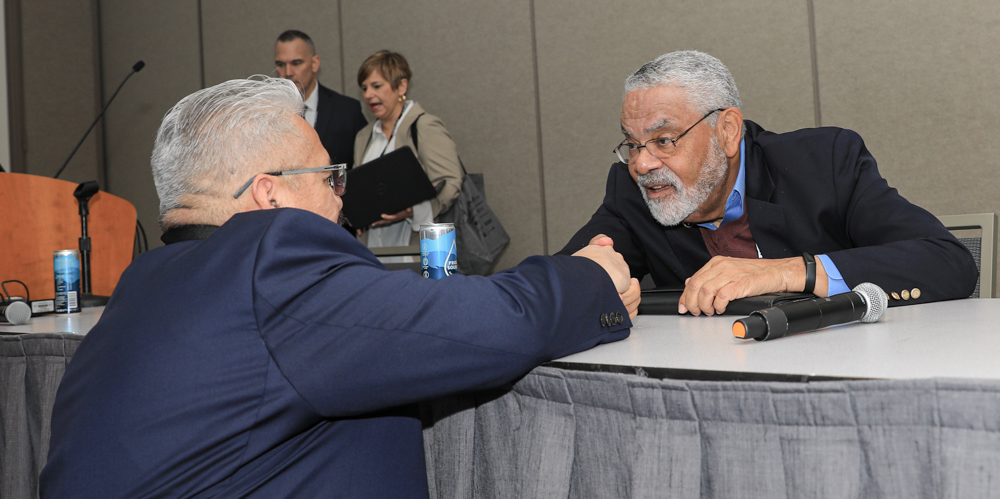Framework for Political Leadership in the Superintendency
Superintendents already use a variety of sound strategies to navigate politics in their communities, many of them based on what they’ve learned through years of practice. And yet, the superintendents we know are desperately searching for a more nuanced set of strategies, attentive to personal identity and local context, given the challenges of today. We’ve developed this framework to guide our collective response to that need.
Framework for Political Leadership in the Superintendency
Download the framework matrix to learn more.
Download the Thought Paper
In this paper, we provide an overview of today’s political landscape, offer a framework that captures the knowledge, skills, and dispositions necessary for superintendents to be successful as political leaders, and share our next steps. We hope this work can be a touchstone for those who prepare and support superintendents nationwide.
Framework for Political Leadership in the Superintendency Thought Paper

Photo by Howard Lipin/AASA.

Three dimensions
In order to be effective, we believe that today’s superintendents must consider what is happening politically at the federal and state levels (the MACRO political environment), what is happening at the local school district level (the MESO political environment), and how their own political viewpoints and other identities/affiliations (the MICRO political environment) influence how they lead.
Dimensions of Political Leadership in the Superintendency
Download this guide to learn more about each dimension of the framework.
Photo by Harvard Graduate School of Education
MICRO
Self
A superintendent critically examines self as a leader.
The superintendent as a political leader reflects on the influence of their identity (e.g., race, ethnicity, gender, sexuality), stays grounded in their personal values, and consistently strives to make principled decisions that support a school system to ensure all children thrive in school.
- Identity
- Critical Examination
- Groundedness
MESO
School District | Local Community
A superintendent leads a school district by working across differences.
A superintendent leads a school district by working across differences. The superintendent as a political leader models how to work across differences through shared visioning, co-construction of strategies, consistent communication, and authentic engagement with students, families, educators, labor partners, school boards, and community partners. The superintendent influences the school community to stand firm in their commitment to the wellbeing of all children.
- Constituent Group Awareness
- Proactive Leadership
- Presence
MACRO
National & State Politics
A superintendent understands the national and state political landscape.
A superintendent understands the national and state political landscape. The superintendent as a political leader understands the laws and policies that protect children, interrogates the opinions of advocacy groups that threaten those protections, and considers the impact of current events on the wellbeing of students, families and staff and acts accordingly.
- Major Education Issues
- Sense-making
- Cognizance
Superintendent’s Political Leadership Field Book
Download the field book to learn more about implementing the framework.
